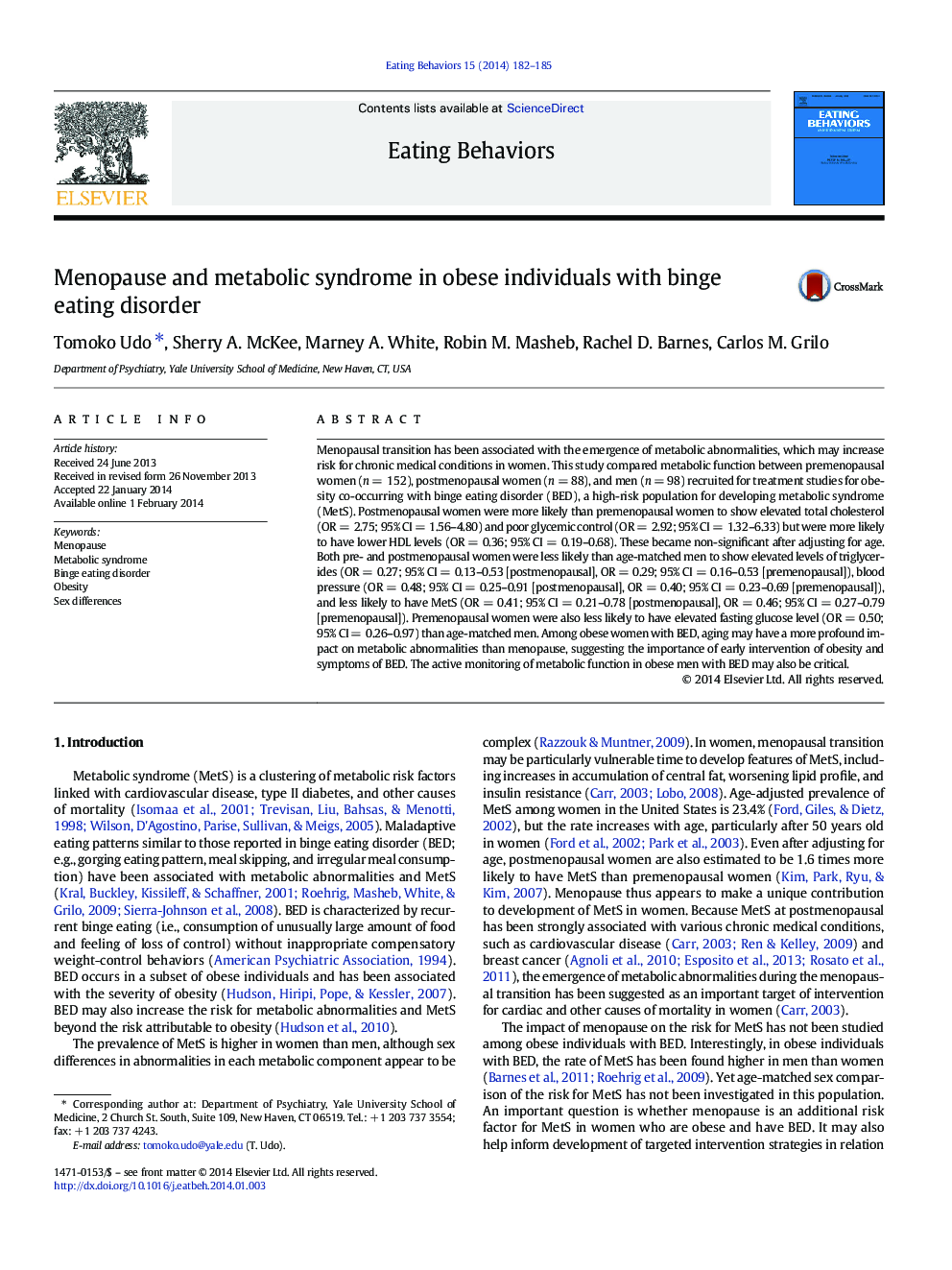| کد مقاله | کد نشریه | سال انتشار | مقاله انگلیسی | نسخه تمام متن |
|---|---|---|---|---|
| 906477 | 917007 | 2014 | 4 صفحه PDF | دانلود رایگان |
• We compared metabolic abnormalities between pre- and postmenopausal women and men.
• We included treatment-seeking obese individuals with binge eating disorders (BED).
• Aging may have stronger influence on metabolic abnormalities than menopause.
• Men showed greater risk for metabolic abnormalities than women in general.
• Actively assessing for metabolic problems is important in obese patients with BED.
Menopausal transition has been associated with the emergence of metabolic abnormalities, which may increase risk for chronic medical conditions in women. This study compared metabolic function between premenopausal women (n = 152), postmenopausal women (n = 88), and men (n = 98) recruited for treatment studies for obesity co-occurring with binge eating disorder (BED), a high-risk population for developing metabolic syndrome (MetS). Postmenopausal women were more likely than premenopausal women to show elevated total cholesterol (OR = 2.75; 95% CI = 1.56–4.80) and poor glycemic control (OR = 2.92; 95% CI = 1.32–6.33) but were more likely to have lower HDL levels (OR = 0.36; 95% CI = 0.19–0.68). These became non-significant after adjusting for age. Both pre- and postmenopausal women were less likely than age-matched men to show elevated levels of triglycerides (OR = 0.27; 95% CI = 0.13–0.53 [postmenopausal], OR = 0.29; 95% CI = 0.16–0.53 [premenopausal]), blood pressure (OR = 0.48; 95% CI = 0.25–0.91 [postmenopausal], OR = 0.40; 95% CI = 0.23–0.69 [premenopausal]), and less likely to have MetS (OR = 0.41; 95% CI = 0.21–0.78 [postmenopausal], OR = 0.46; 95% CI = 0.27–0.79 [premenopausal]). Premenopausal women were also less likely to have elevated fasting glucose level (OR = 0.50; 95% CI = 0.26–0.97) than age-matched men. Among obese women with BED, aging may have a more profound impact on metabolic abnormalities than menopause, suggesting the importance of early intervention of obesity and symptoms of BED. The active monitoring of metabolic function in obese men with BED may also be critical.
Journal: Eating Behaviors - Volume 15, Issue 2, April 2014, Pages 182–185
